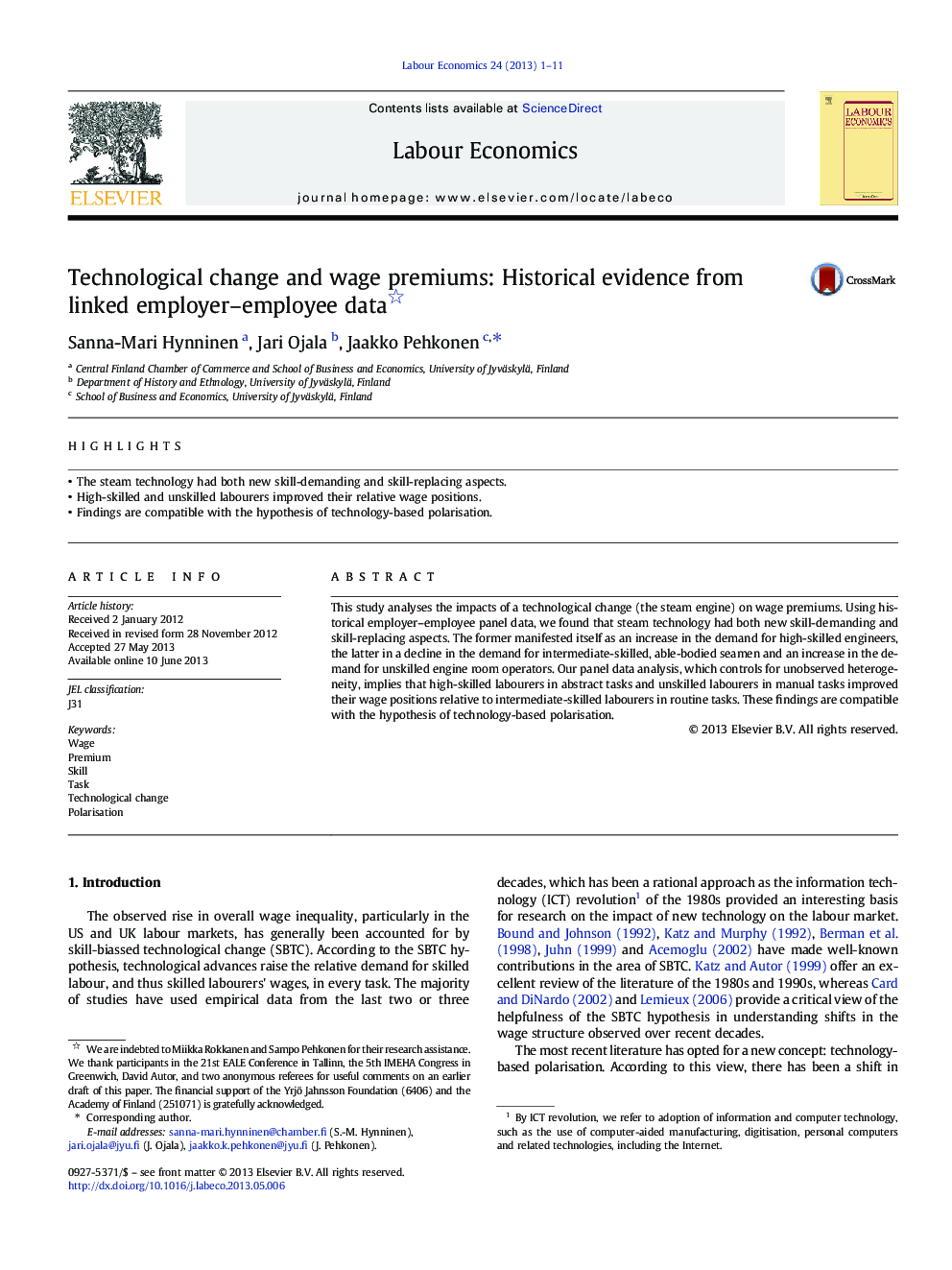| Article ID | Journal | Published Year | Pages | File Type |
|---|---|---|---|---|
| 7372229 | Labour Economics | 2013 | 11 Pages |
Abstract
This study analyses the impacts of a technological change (the steam engine) on wage premiums. Using historical employer-employee panel data, we found that steam technology had both new skill-demanding and skill-replacing aspects. The former manifested itself as an increase in the demand for high-skilled engineers, the latter in a decline in the demand for intermediate-skilled, able-bodied seamen and an increase in the demand for unskilled engine room operators. Our panel data analysis, which controls for unobserved heterogeneity, implies that high-skilled labourers in abstract tasks and unskilled labourers in manual tasks improved their wage positions relative to intermediate-skilled labourers in routine tasks. These findings are compatible with the hypothesis of technology-based polarisation.
Related Topics
Social Sciences and Humanities
Economics, Econometrics and Finance
Economics and Econometrics
Authors
Sanna-Mari Hynninen, Jari Ojala, Jaakko Pehkonen,
